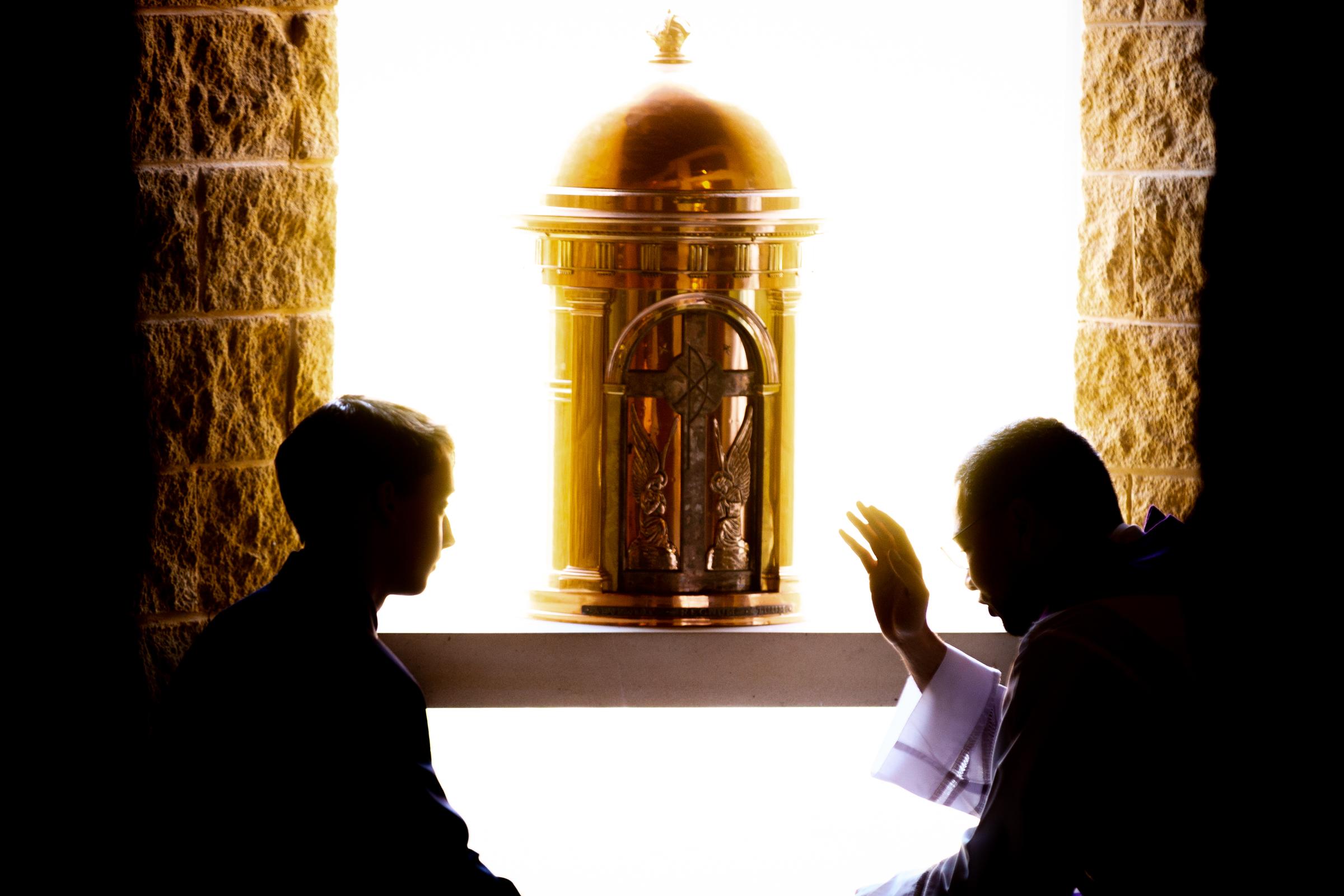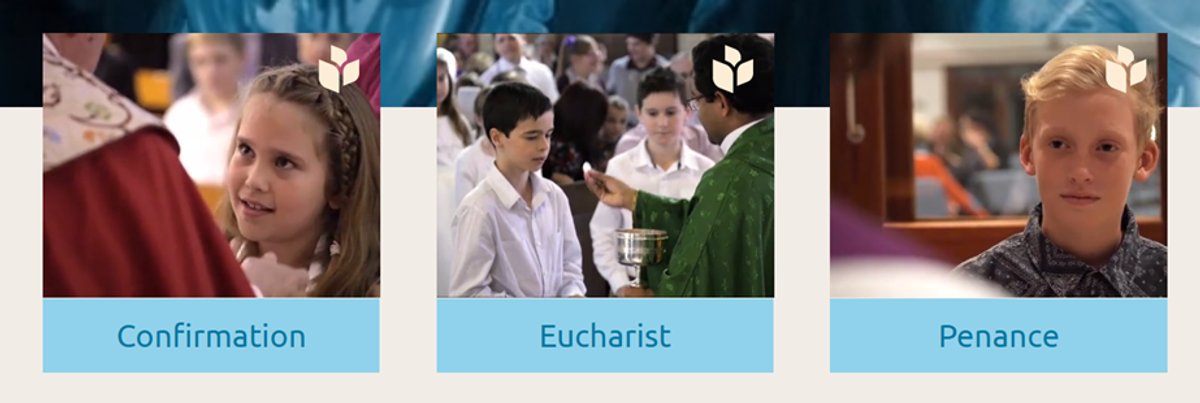Liturgy

Community Mass
Thank you to Year 12 students for preparing the liturgy this morning. Next week students in College Magis programs will be preparing the liturgy. After Mass, families are very welcome to stay for coffee in the Circle of Friends café.
Community Mass details:
- College Chapel
- Fridays in term time
- Starts: 8:00am and concludes 8:30am
SACRAMENT PROGRAM
‘Family-focused, parish-based, Catholic school supported’
Congratulations to Year 6 students…
…who were confirmed in the parish of St Joseph’s Subiaco last weekend:
- Jules Armstrong
- Joshua Kong
- Nicholas Maroni
- Matilda Martin
- Olivia Pronk
- Olivia Rundus
- Alessio Torre
- Cooper Tout
Parents of students in Years 3, 4 and 6
A reminder that students need to be enrolled in the parish sacrament program for the respective sacrament. Parishes need to plan for these events, so enrolment is essential.
In preparing for the celebration of sacraments, there is likely to be some variations from parish to parish. In general, parents need to complete the enrolment form in advance, and will need to show the child’s Baptism certificate. There is likely to be a parish commitment Mass, possibly a session for parents and, in some cases, a mini-retreat for students. Parishes will usually organise a rehearsal ahead of the celebration of the sacrament.
To make arrangements for your child to celebrate the sacraments this year, contact the Parish Priest or Sacrament Coordinator in your own home parish at the earliest.
Enrolment details for parishes of City Beach, Doubleview, Subiaco and Cottesloe/Mosman Park, may be found here. Cottesloe/Mosman Park parish advises that enrolments for the Sacrament of Confirmation will close on 1 August.
If you would like further information contact:
- If your nearest parish is not listed, search the Archdiocesan website;
- Contact Mary-Anne Lumley mary-anne.lumley@cewa.edu.au 08 9383 0513.
GOOD NEWS for the Feast of the Trinity
The Feast of Trinity Sunday was celebrated throughout the whole Catholic Church only quite late - in the fourteenth century. In earlier times every Sunday was dedicated to the Holy Trinity. This was evident in the frequent reference to the Father, Son and Spirit as one God in the prayers of the liturgy. No special feast was needed.
The emphasis on teaching about the Trinity can be traced back to one of the greatest challenges to Christian faith that took place in the fourth century. Christians became divided by the way in which they thought of God. Previously they had all prayed to the Father and to Christ and had recognised the work of the Spirit in their Christian lives. At the same time they had insisted that the Christian God is one, in contrast to the many Gods of the pagans. Few were concerned how these convictions fitted together. In the Fourth Century, however, there was fierce debate in which the foundations of faith were at stake.
The crisis began when some Christians questioned the relationship between Jesus, the Son of God, and God the Father. They asserted that Jesus was central to Christian faith and was the special ambassador of God, but was a lesser being than God the Father. This belief was eventually seen to threaten the heart of the Gospel, which saw that God was personally involved in Jesus’ life and death. Jesus was not just God’s messenger but God’s Son. He is Son of God in the deepest sense, and through him God’s stake in humanity is God’s own self. The conviction that the stories and actions of Jesus are actions of God underlies the Feast of the Trinity.
The Christians who believed that Jesus was lesser than the Father then forced their opponents to address another central question. If Jesus, the Son of God, the Father and the Spirit are all God, how can they be the One God to whom Abraham and Jesus prayed, and not two or three Gods. The Church called to resolve the disputes did not explain how God is three and one, but used the language of one God in three Persons to assert both that God is one being and that Father, Son and Spirit share fully in divinity. The prayers and sermons on the Feast of the Trinity make that point again and again. It is not an explanation but a way of speaking that respects the full mystery of God’s love for us.
Unless we know a little about the history behind the words we use to describe God as Trinity it is easy to dismiss the belief as concerned with divine mathematics. It really celebrates something much deeper: the depth of God’s involvement with us in the salvation that Jesus brought us. It insists that when Jesus spoke to us, God speaks, when Jesus dies on the cross, God dies in him, that when Jesus rises and ascends to God he takes us with him and that when the Spirit works within our lives and Church, God works within us. The Feast of the Trinity says that our world is not God’s colony under colonial management but is God’s home. It is about the intimacy of God’s presence to us in our world and in the Church through Jesus.
©Andrew Hamilton
This week’s reflection, for this Sunday’s feast of the Holy Trinity is from Father Andrew Hamilton SJ. Father Andy is a Jesuit, a theologian, a writer and, among his many other roles, the Media Officer for Jesuit Social Services.


